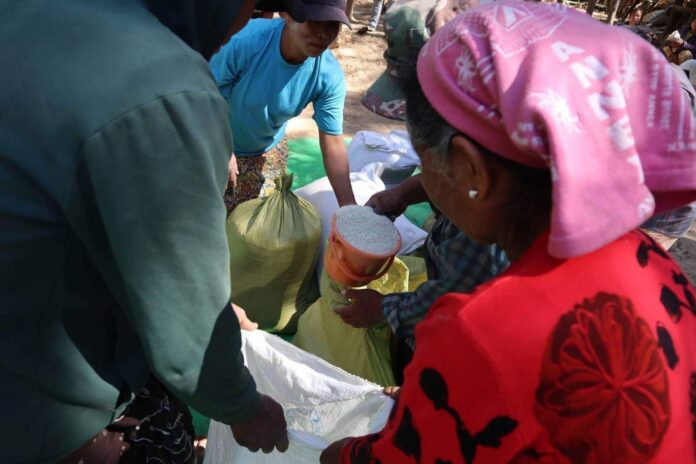By Kantarawaddy Times
Most of the international humanitarian aid distributed by the regime in Karenni State hasn’t helped the more than 200,000 internally displaced persons (IDPs), according to the Karenni State Consultative Council (KSCC).
U Banyar, head of the council’s humanitarian aid committee, said only five per cent of the aid has reached civilians displaced from their homes by the war. About 20 groups are providing aid through the regime, he said, suggesting that they work with ethnic armed organisations fighting the military if they want to help the people.
Since May, the World Food Programme (WFP) has been providing rations in the town of Loikaw. But not in the nearby Demoso and Hpruso townships, which are controlled by the Karenni Army and the Karenni Nationalities Defence Organisation and where most of the IDPs have fled.
On Women’s Day, the Karenni National Women Organisation also demanded the same in a statement.
“It is important that humanitarian aid reaches women and children. If the organisations collaborate with the military regime, the aid won’t reach those who need it most,” Maw Hpray Myar, the second secretary for the women’s organisation, told Kantarawaddy Times. To successfully provide rations to the IDPs, it’s necessary to work directly with the local community and organisations, she said.
Seventy volunteer teams are helping IDPs in the non-regime controlled areas who have been unable to return home for almost two years.
“Sometimes they don’t get rice. They had to buy it for 70,000 kyat a bag ($33), but I don’t know if they’ll be able to buy it in the future,” said one volunteer who wished to remain anonymous.
The military controls the main roads leading into the state and will stop the food rations for IDPs. At the same time, farmers have tilled only 35 per cent of the arable land in 2022 because of the war, which has led to shortages.
Although relief supplies are reaching Loikaw, the capital of Karenni State, Stephen Anderson, WFP’s representative in Burma, told the Kantarawaddy Times that people lack other services and would sell their rice donation if they had to pay for health care, especially for their children.




